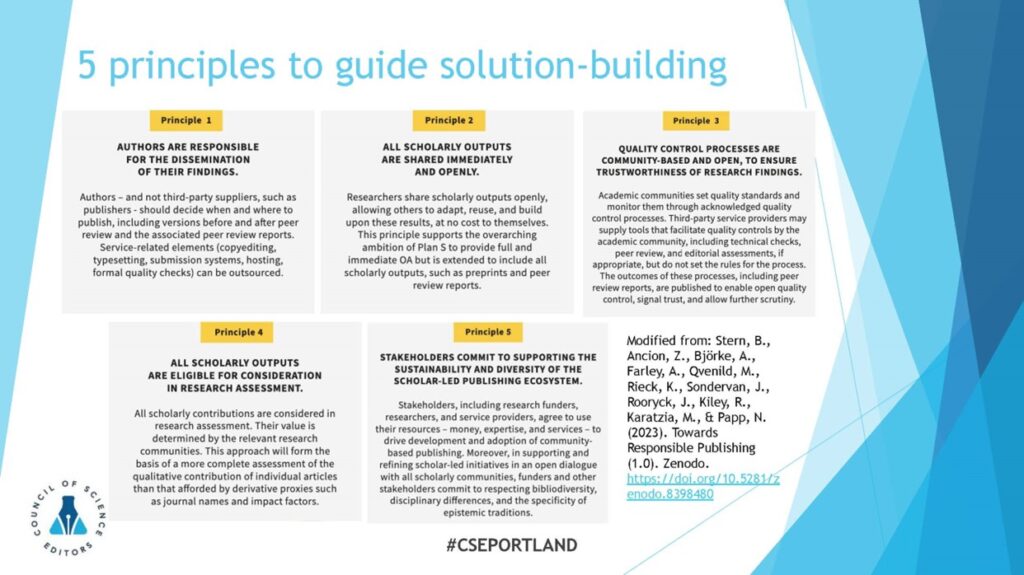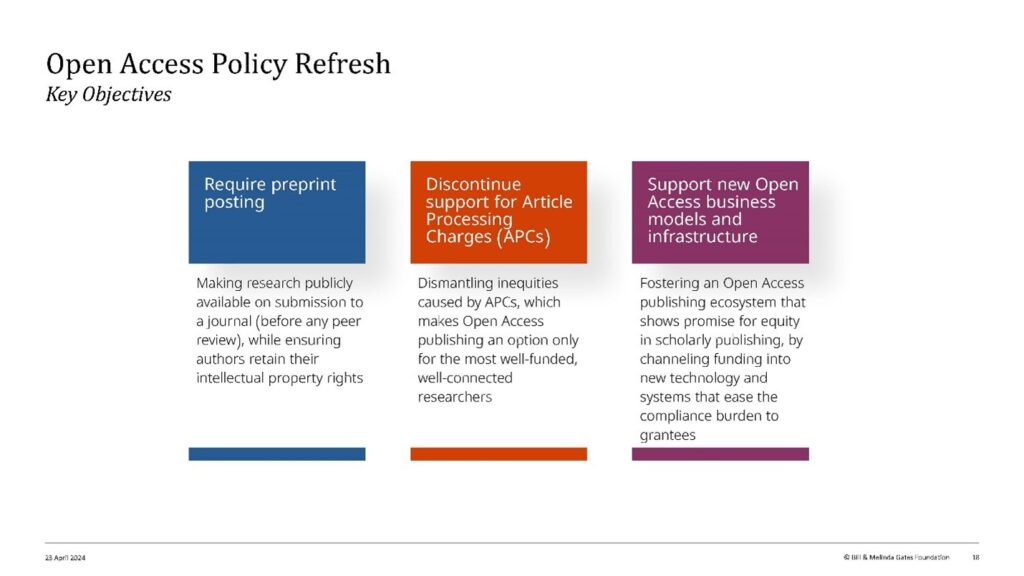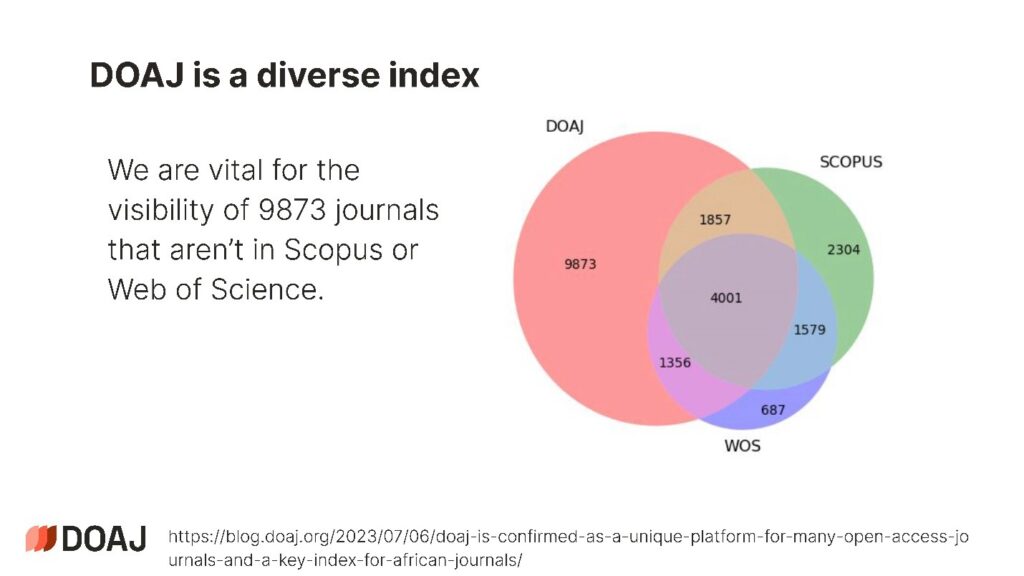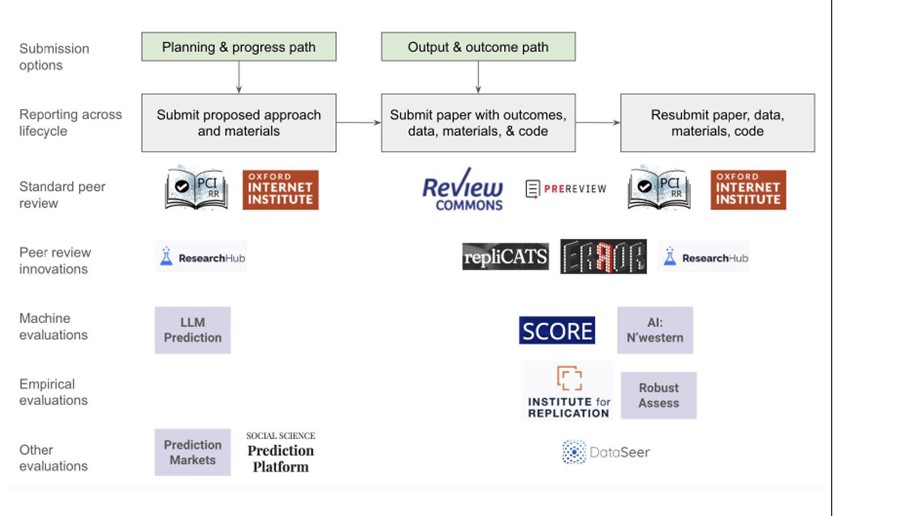MODERATORS:
Dax Rodulfa-Blemberg
American Society of Hematology
Daniela Saderi
PREreview
SPEAKERS:
Ashley Farley
Bill & Melinda Gates foundation
Ivonne Lujano
Community Manager
Directory of Open Access Journals (DOAJ)
Lisa Cuevas Shaw
Center for Open Science
REPORTER:
Denise Kuo
Origin Editorial
The stage was set for a robust discussion of a community-based and scholar-led open research system as Daniela Saderi enumerated the reasons why scholarly communication needs to change, including the need to be more equitable, speed sharing of research outputs, realizing the full potential of peer review, and decoupling editorial gatekeeping from academic career incentives.
Inspired by the recent release of “Towards Responsible Publishing: A Proposal From cOAlition S,”1 the session began with Saderi making the case for aligning the approach to disseminating scholarship along the 5 principles detailed in the proposal. The approach calls for the author to be placed at the center, with other stakeholders committing to support the sustainability and diversity of the publishing ecosystem as quality control is achieved through open, community-based processes (Figure 1).

Each speaker described a different aspect of the envisioned community-based and scholar-led open research system and hopes for the future of the ecosystem. As co-Founder and Executive Director of PREreview, Saderi focused on peer review expertise, which can be achieved through peer review training programs, open platforms where ORCID-identified scholars can provide constructive feedback, and experts across the world can engage in live collaborative reviews. In this vision of a community-based and scholar-led open research system, the peer review expertise discussed by Saderi would be applied to preprints.
Representing the Bill & Melinda Gates foundation, Ashley Farley provided context for the funder’s support of approaches to open scholarship that serve the best interests of the public and the academic community as envisioned by the foundation. Committed to Open Access (OA) for a decade, the foundation has demonstrated the value of collective action through membership in Plan S and is working toward a more inclusive future in research dissemination. Farley gave an overview of the foundation’s recently released Open Access Policy Refresh and connected the intent behind the policy refresh with the principles of a community-based and scholar-led open research system (Figure 2).

Themes throughout focused on improving diversity and equity, and similarly to Saderi’s presentation, preprints take on an important role in the foundation’s vision. It was agreed through discussion that the policy refresh focuses primarily on changes that will impact commercial publishers of Bill & Melinda Gates foundation–funded scholarship, leaving society publishers unclear of how, or if, they fit into the foundation’s vision for a community-based and scholar-led open research system.
Ivonne Lujano, DOAJ’s Community Manager and Ambassador in Latin America, presented the Latin American publishing model as one example of a successful implementation of a community-based and scholar-led open research system. The Latin American publishing model evolved over the course of nearly 40 years, taking the first steps in the 1980s as an emerging model that included transition to digital publishing systems, the introduction of government legislation, and the first arguments for alignment between regional science and national interests. The model continued to develop over several decades around the core value that science is the shared responsibility of the public, government, and academic institutions, and it is a fundamental expectation that science is supported by government and public funds distributed to researchers and institutions.
The Latin American publishing model developed in an environment that has never had a strong commercial publishing presence, which contrasts with the so-called Global North climate that includes several large commercial publishers that were an important consideration for the Bill & Melinda Gates foundation’s refreshed policy.
The Latin American model successfully serves universities, research centers, museums, and governments through a suite of products including SciELO, Latindex, and LA Referencia. However, the model is not foolproof. Lujano outlined several risks to continued success, including the reliance on public funds, which are controlled by governments that change over time, and the implementation of past policies that have inadvertently led to job insecurity.
The Directory of Open Access Journals (DOAJ), a community-funded, open infrastructure, is intentionally working to make it easier for community-based and scholar-led open research systems like the Latin American model to succeed. Language of publication is not a criterion for inclusion, and applications are reviewed manually by a human (not artificial intelligence), with a focus on the services a journal provides are two examples of how DOAJ demonstrates commitment to ensuring a diverse index (Figure 3) through an equitable application process.

As an example of a potential implementation for community-based and scholar-led open research, Lisa Cuevas Shaw described Lifecycle Journals, a proof-of-concept pilot initiative currently in progress with 3 years of funding. A key component of Lifecycle Journals is the focus on opening the entire lifecycle of research to allow all processes, outputs, data, code, and beyond, to be shared, evaluated, and rewarded. Throughout the 3-year pilot, 10 to 30 projects will complete the process with Lifecycle Journal. In contrast to the historical approach of peer reviewing only the final product in the form of a manuscript, the shift to including all outputs means that peer review and other evaluation methods will be applied at multiple points and to different portions of the research. Building on elements of registered reports and F1000, additional current tools and services have been incorporated to foster evaluation diversification and pathways for experimentation and incorporation of novel evaluation methods (Figure 4).

The 3-year project includes an assessment of whether to transition to pursue a scalable product and sustainability model. Continuing beyond the pilot will require funding support from a range of sources, including philanthropy, government, and institutions.
There were variations to the vision of a community-based and scholar-led open research system in each presentation, but all placed importance on the need to change academic career incentives to achieve the goal.
References and Links
- Stern B, Ancion Z, Björke A, Farley A, Qvenild, Rieck K, Sondervan J, Rooryck J, Kiley R, Karatzia M, et al. Towards responsible publishing. Zenodo. https://doi.org/10.5281/zenodo.8398479.
